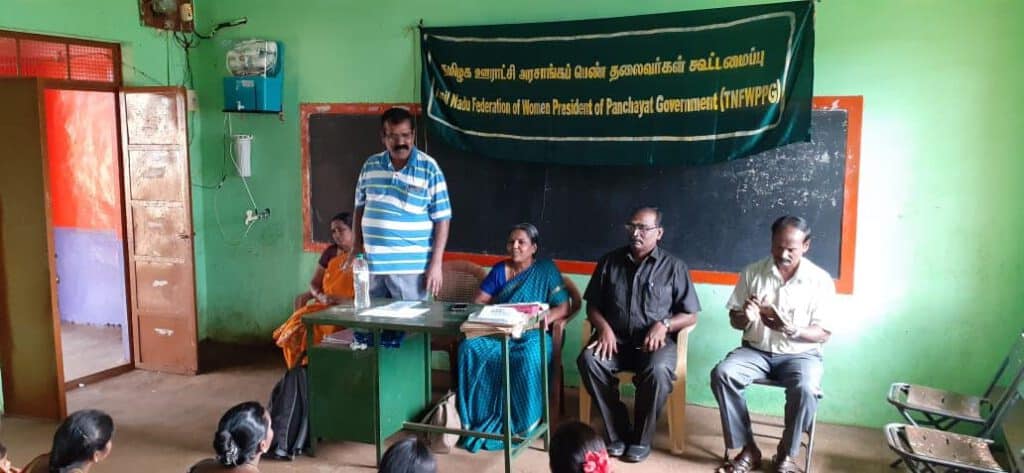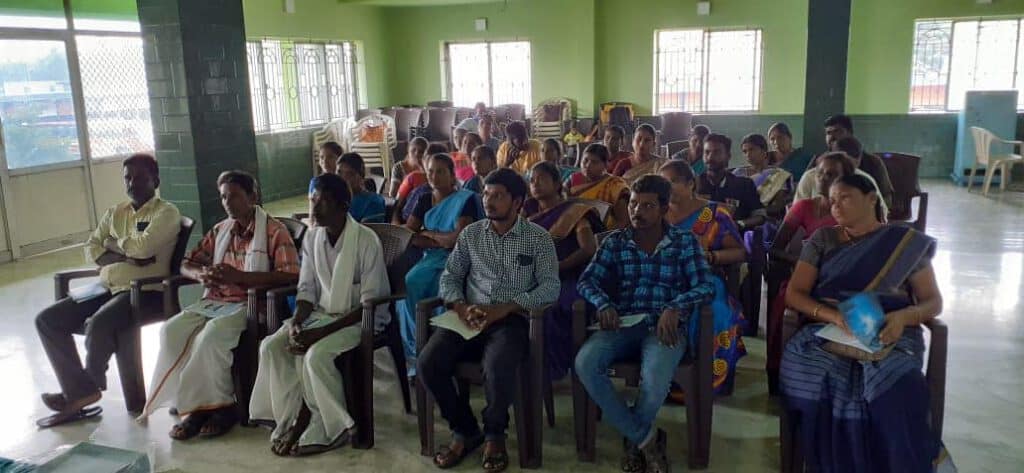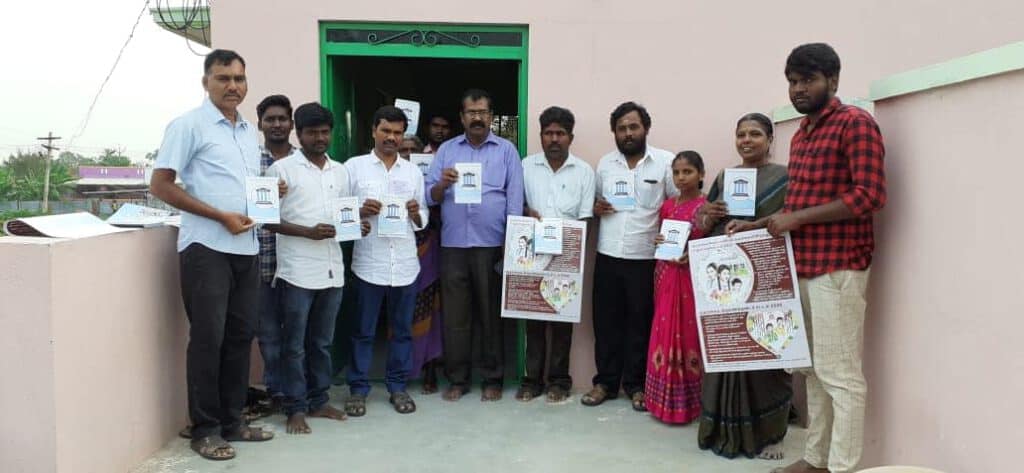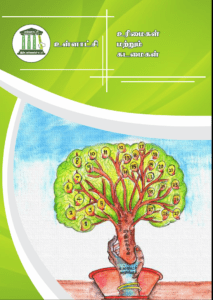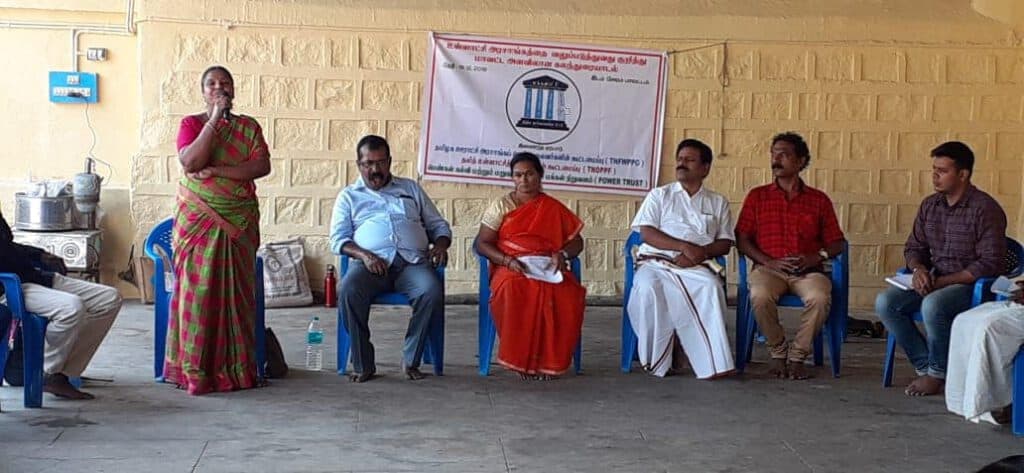
Local self-government institutions (Panchayats) are the first tier of government. It is the most accessible tier of government, where socially excluded communities and women can contest in elections and taste their first success. The local government also drafts plans, allocates budgets, and implements them for the well-being of the community.
In 2016, the Tamil Nadu Legislative Assembly increased reservation for women in local self-government from 33% to 50%. This legislation gives a ray of hope among women (especially Dalits and Adivasis) and ensures that no one is left behind. The elections to local self-government were due in September 2016. There were several avoidable delays, and the elections were finally conducted on 27 and 30 December in 27 of 37 districts of Tamil Nadu, following orders from the Supreme Court of India.
In the small window when elections were announced (9 December) and campaigning concluded (23 December 2019) the Institute of Human Rights Advocacy and Research prepared a primer on the elections by collating the latest government orders and guidelines and best practices for voters, candidates, and human rights defenders. Nine district level meetings were organised to strengthen local self-government in Tamil Nadu.
Each programme was co-organised with a CSO from the district (see details in the table below). These three hour programmes emphasised basic voting rights and duties among voters; elector’s rights and duties; do’s and don’ts; eligibility criteria, etc. The programmes were to educate and empower the general public, especially Dalits and Adivasis. The resource team consisting of Chitra (Senior Coordinator, HRF) M.L. Dass (Senior Consultant, HRF) and Roshan Sunthar (Associate Coordinator, HRF) conducted the training programmes in eight districts from 18 to 23 December 2019. 275 participants (204 women and 71 men) attended the sessions.
Each session began with an introduction to the history and importance of local self-government. Following this, the resource team elaborated on specific areas of importance. Chitra introduced HRF and its major functions. This was followed by M.L. Dass briefly explaining the panchayat elections. It includes three types of agents (agents for election, booth, and counting, who can be nominated by the candidate); different types of votes and its purpose (challenged vote and tender vote); and how to formally report a violation or an offence. These were illustrated with case studies.
After this, the floor was open to questions. Many participants asked questions and clarified their doubts. A few shared their experiences during elections and explained how they handled the uncertainty quickly. At the end of the training all participants acquired useful insights about the local panchayat election.
| S.No. | Date | District | Co-organiser | No. of Participants |
| 1. | 18.12.2019 | Dharmapuri | Ramu Welfare Trust | 40 (All women) |
| 2. | 19.12.2019 | Salem | Power Trust | 36 (24 women, 12 men) |
| 3. | 19.12.2019 | Namakkal | SRN Charitable Trust | 10 (All men) |
| 4. | 20.12.2019 | Tiruppur | Vizhuthugal Book | 26 (22 women, 4 men) |
| 5. | 21.12.2019 | Tiruppur | SMAIL Trust | 14 (2 women, 12 men) |
| 6. | 21.12.2019 | Erode | READ Trust | 45 (34 women, 11 men) |
| 7. | 21.12.2019 | Coimbatore | ASAD | 13 (2 women, 11 men) |
| 8. | 22.12.2019 | Dindigul | Child Voice and ISIM-WDRC | 47 (36 women, 11 men) |
| 9. | 23.12.2019 | Madurai | ISM-WDRC | 44 (All women) |


